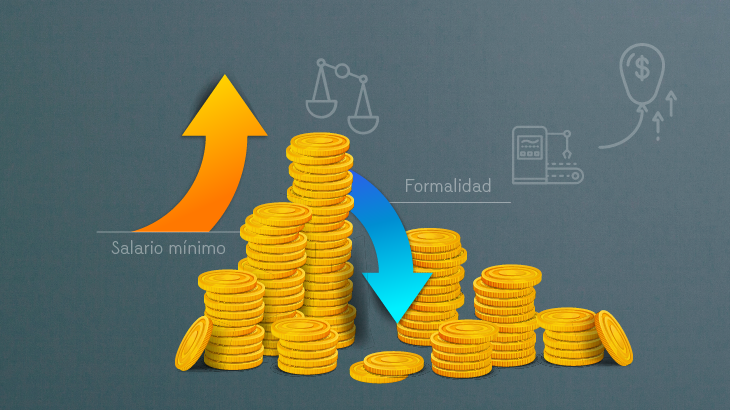
The most recent
Abstract
We examine the adjustment of a small, open, emerging market economy (SOEME) to an unexpected increase in the minimum wage using an extended New-Keynesian SOE model that incorporates heterogeneous households, a flexible production structure, and a minimum wage rule. We calibrate the model for Colombia and find that an unexpected increase in the minimum wage has significant effects on the low-skilled labor market, and weaker impacts on inflation and the policy interest rate. The rise in the minimum wage increases production costs and prompts the substitution of formal low-skilled labor with informal workers and machinery, resulting in reduced output, increased inflation, and higher policy interest rates. We also observe that the minimum wage influences the transmission of productivity, demand, and monetary shocks, leading to a more persistent impact on macroeconomic variables, and a less efficient monetary policy to control inflation. Our findings suggest that the minimum wage has important macroeconomic implications, and affects emerging market economies through different channels than in developed economies.




